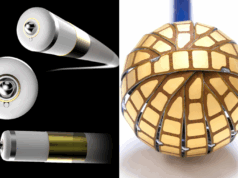On 4 November the 1,000th patient was enrolled in the AFNET-EAST trial. The pan-European clinical trial compares two different treatment strategies in atrial fibrillation EAST trial compares early rhythm control therapy to usual care.
The EAST (Early treatment of atrial fibrillation for stroke prevention) trial evaluates whether an early restoration of the normal sinus heart rhythm, in addition to anticoagulation, can prevent complications more effectively than usual care. Since summer 2011, over 1,000 of the 2,810 scheduled patients have been enrolled in 11 European countries. The trial is conducted by the German association Kompetenznetz Vorhofflimmern e.V. (AFNET e.V.) in cooperation with the European Heart Rhythm Association (EHRA).
The study patients are randomised to either receive early rhythm control therapy or usual care. Usual care is consistent with the therapy recommended by the current guidelines of the European Society of Cardiology (ESC). In the early rhythm control therapy group, this usual care is supplemented by every available method needed to stop atrial fibrillation as early as possible and to restore and maintain the normal heart rhythm throughout the study duration.
Paulus Kirchhof, principal investigator and coordinator of the trial, explains: “Many cardiologists are convinced, as I am, that patients can benefit from the preservation of sinus rhythm. But we do not have data from controlled trials to suggest that rhythm control therapy will help to prevent complications associated with atrial fibrillation. That is why we are conducting the EAST trial. The direct comparison of both treatment concepts will reveal the benefit of maintaining sinus rhythm.”
For the conduct of the trial, AFNET e.V. relies on financial support that is provided by the companies Sanofi and St Jude Medical.









